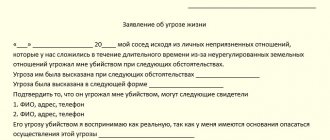A conscript from Dagestan tried to force a colleague to join the squad in his place, and when he refused, he hit him in the face. Now he will spend the next five months in a disciplinary battalion. Previously, such stories were not uncommon, but now news about the “army prison” has almost disappeared from the agenda. Disbats as a shock means of re-educating soldiers who have committed misconduct are becoming a thing of the past. Currently, there are only two of them left, although at the time of the collapse of the USSR there were 21 such units in the armed forces. The number of convicted sergeants and sailors in disciplinary units has decreased from 17 thousand in Soviet times to two to three hundred people currently. Moreover, their number continues to decrease. Izvestia recalled the history of its creation and learned how soldiers now serve in disciplinary units.
Responsible for policy: commanders will monitor the condition of subordinates
The MPS indicator will become one of the main criteria when checking the combat readiness of units
Disbat: is it true what they say about him?
As soon as it began, most of the individual disciplinary battalions (except those stationed in the eastern regions of the Soviet Union) were disbanded. The servicemen serving their sentences in them were sent to the front line and enrolled in ordinary military or penal units - this depended on the severity of the crimes committed. At the end of the summer of 1942, in accordance with Order No. 227 (popularly referred to as “Not a Step Back”), it was decided to create front-line penal battalions for command personnel, as well as army penal companies for Red Army sergeants and petty officers.
This is how the first disciplinary battalions were created,
Fuel for diesel
The modern history of disciplinary units dates back to July 6, 1940, when, by decree of the Presidium of the Supreme Soviet of the USSR, disciplinary units were introduced into the Workers' and Peasants' Red Army. The document was signed by the Chairman of the Presidium of the Supreme Soviet of the USSR Mikhail Kalinin. At that time, disciplinary punishments were harsher than now. The document stated that even the unauthorized absence of a soldier or Red Navy man from a unit for more than two hours entails being tried by a military tribunal and being sent to a disciplinary battalion for a period of six months to two years.
In the USSR, there were disciplinary battalions in every military district and fleet. The most stringent conditions were created in these units, so the soldiers were afraid to end up in disbats and, if there was an alternative, they preferred to serve their sentences in a regular colony. Immediately after the collapse of the Soviet Union, discipline in the “diesels,” as these military units are called in soldier’s jargon, fell sharply. Cases of mass disobedience were often observed in disciplinary battalions.
Disbat_4
Convicted serviceman of a separate disciplinary battalion during work
Photo: TASS/Vladimir Zinin
Political officer instead of a teacher
The Ministry of Defense has determined the main functions of political instructors, which should appear in the Armed Forces by the end of the year
In some disciplinary units, the army hazing was mixed with prisoner rules coming from prisons and pre-trial detention centers. The entire contingent of convicts, both in disbats and in the zone, was divided into several categories: “thieves”, “thieves”, “devils”, “lowered” and “roosters”.
The discipline was returned only in the 2000s. The last case of mass disobedience that became known to the public took place in 2003 in a disbat in the Chita region.
Tough New Year in the disbat near Chita
The devil was going on in the units; hazing was turning into hazing.
According to the combat schedule of penal units and units of the Red Army in 1942-1945, there were more than 50 penal battalions and more than 1000 penal companies. In the post-war period, most of these units and units were disbanded or reformed.
Soldiers were sold into slavery: to construction sites and markets, and some even into sexual slavery, an example of this is the scandalous story from the security brigade of the mother of his GENERAL STAFF! Disciplinary military units were no exception; many who served there as variable and permanent personnel characterize these places as follows.
Military units with once titanium discipline have turned into places of lawlessness and Zonov’s concepts.
1 out of 4 companies is ostentatious, the rest are under the control of “godfathers” in an agreement with the administration.
What's going on there is pure chaos. They might rape you, or they might kill you.
It is run by sadistic grandfathers and people with a distinctly southern appearance. Yes, this is a disbat and these are convicts. The place where those who have committed an offense must be corrected has turned for some into heaven on earth.
Such ordinary gatherings of convicts characterized the atmosphere of those years. The new head of the disbat near Chita did not like this situation.
Cramming the regulations and drill training
There are now two disbats left in the army: in the village of Mulino, Nizhny Novgorod region, and in the village of Kashtak, Chita region.
Formula of protection: how in Russia they train specialists of the RCBZ troops
Izvestia visited the only center in the country where 570 chemist soldiers are trained for the army every six months
“Diesel” is a disciplinary military unit where conscript soldiers and sergeants, as well as first-year cadets at military universities, are sent to serve their sentences. Now approximately 40% are convicted of AWOL, about the same number for hazing, and the rest for criminal offenses. The maximum period of stay in disbat is limited to two years.
All personnel are divided into two categories: variable and permanent. The variable composition is the convicts, and the permanent composition is the guards. The number of convicts serving in each “diesel” cannot exceed 500 people, with a total permanent strength of a separate disciplinary battalion of 300 people.
It is difficult to serve as a security guard, so officers here are given a military rank one level higher than in similar combined arms units: platoon commander is captain, battalion commander is colonel.
The battalion operates under a strict regime, prescribed in the “Regulations on the Disciplinary Military Unit.” All convicts caught in disbat are stripped of their ranks and become privates or sailors. The unit itself lives strictly according to the regulations.
Disbat_2
Delivery of convicts to the Separate Disciplinary Battalion of the Siberian Military District
Photo: RIA Novosti/Nikolai Fedorov
Military educators received multimedia all-terrain vehicles
Modern technologies are used to inform and organize leisure time for soldiers in the field.
There is a strict daily routine that not everyone can withstand. The day of an ordinary variable personnel goes like this: getting up at 6 am, two hours to memorize the regulations, two hours of drill training and, finally, two hours of running and physical exercises and fire training with weapon models. After lunch everything repeats itself. In part, soldiers move only in formation. For violating internal regulations, you can be sent to a guardhouse, where you can “stay” for 30 days.
Convicts are involved in economic work in the unit. In addition, the unit commander can send soldiers to work outside the battalion. In this case, half of the money earned will go to the unit’s account, the other half to the soldier’s account. But he will receive them only after dismissal - cash is prohibited in the disbat.
After the “diesel”, the soldiers go to finish their service in their unit. It is important that a variable soldier will go to civilian life with a passport without a criminal record - this data will remain only in military documents and will not negatively affect the fate of the young man, if he leads a law-abiding lifestyle. Theoretically, a former disbat member will even be able to work in the police.
Contract workers will undergo health tests
The army will introduce mandatory annual medical examinations
Now “diesels” are under the supervision of regional Public Monitoring Commissions (POC). Their representatives regularly conduct inspections of disciplinary units and talk with convicted soldiers. Recently, human rights activists have recorded a decrease in the number of complaints. Another important trend is that the number of variable diesel soldiers has decreased by approximately half in recent years.
Disbat riot reasons
The sleeping quarters in the barracks are separated by a locked metal lattice door. If at night a fighter feels the urge to go to the toilet, he must check in on a special list and proceed to the place of discharge of natural needs strictly in splendid isolation. Already together, for example, you can’t rush to the toilet at night.
While we were photographing the orderly, the outfit sleeping in the barracks received the command “Rise!” Those on vacation instantly flew over their beds and marched in a clear, short formation to the washing room. The national question is largely absent; various kinds of “community communities” and other groups are not encouraged.
But the so-called “Caucasians” are present. Approximately every fourth of the 170 current “convicts” is from the Caucasus. Interesting because it previously languished in some safe and only recently saw the light of day.
But first I’ll make a digression.
I don’t know how well military training is going in the Russian army today
Dad-disbat
He immediately made me shudder - a dark silhouette hanging on the barbed wire. Lash arms, an unnaturally turned head, legs rooted in the ground. The scene from the life of Auschwitz or Stalin’s Solovki looked so natural that goosebumps ran down your spine, and the question stuck in your throat like a lump: “What is going on here? It's not a prison. Just a disbat...”
“So you bought it,” Major Oleg Zemskov frowns. - What a stunning sight. Fits perfectly into the idea of a disciplinary battalion: an energized “thorn”, godfathers, beast overseers who drove a soldier to suicide. No one would even think that zucchini is grown here. And they put up a scarecrow to drive away the crows...
A trip near Nizhny Novgorod to the village of Mulino, where the disciplinary battalion of the Moscow Military District is stationed, turned into complete surprises...
At five addresses
The saying “The first impression is the truest” was not suitable for this case. There were more than enough impressions, but all of them did not fit in with the disbat.
The battalion psychologist, Major Zemskov, brought us to the unit before dawn, and his half-asleep glance managed to snatch from the darkness a “hedgehog” stretched out at the gate and concrete blocks—these were found at every checkpoint after the explosions in Grozny and Mozdok.
But the house where we went to have tea from the road was as different from the government office as Sanduny was from a rural bathhouse. Billiards, a fireplace made of sanded brick, forged rose candlesticks, a Sony home theater and souvenir bottles of Armenian cognac in the shape of sabers and daggers brought to mind thoughts of Novorussian dachas.
— Instead of bribes, they give? — The question suggested itself.
- They gave the commander a gift, but he doesn’t drink. “The major seemed to make excuses that there were still such people in the army.” “And the soldiers equipped the house with money earned by the battalion—after all, they work here.”
Outside the window, the vague outlines of a sports town and a drill ground appeared. And nothing like watchtowers, rows of barbed wire and posters calling for people to return to freedom with a clear conscience.
The warm comfort made me sleepy. Fortunately, battalion commander Colonel Sergei Luzin just arrived and at breakfast introduced us to the secrets of local life.
The 28th separate disciplinary battalion of the Moscow Military District is one of five scattered from Rostov-on-Don to Khabarovsk. Soldiers who received sentences from 3 months to 2 years for military crimes serve their sentences here. Murderers, rapists and other scumbags belong in prison. And barracks hooligans, fugitives and petty thieves end up in the disbat. The time spent in prison, as a rule, is not counted towards their service life, and after their release, the soldiers continue to serve in some military unit for several months. The most disciplined can count on parole; the commission on their cases meets every week. And in exceptional situations, a soldier is sent home straight from the disbat.
The Mulino battalion’s affiliation with the capital district is conditional, because “swindlers” (as convicts are called here) are driven away from all over Central Russia. Among the 540 prisoners, the majority are land soldiers, but there are also border guards from the Arctic detachment and outposts of the North-Western Directorate, North Sea sailors, air force officers, and even one “Kremlin official” who committed a crime, Vladimir Shumenko. A couple of months ago, many metropolitan newspapers were full of the story of how he almost drove a soldier from the presidential regiment to suicide.
As in any military unit, the dispatchers live in companies.
“It doesn’t matter to us how long the fighter served before. We only take into account the severity of the crime and the term of punishment,” Zemskov explained. - We staff the first and second companies with those convicted under Articles 337 and 338 - for unauthorized abandonment of a unit and desertion. There are more than half of these in the battalion. According to the “sergeant’s” 286th (abuse of official authority), 335th (hazing), 161st (robbery) and other serious articles they fall into the third and fourth. Which unit a soldier is from can be identified by the imprint on the back and chest of the camouflage jacket. In order not to confuse the convicts with the security company, we also display “Convoy” on the back.
Oleg is a teacher by training, he did not graduate from law school, but he is quoted by the Criminal Code as a real prosecutor. From him, for example, we learned that desertion from AWOL is distinguished by “the intent to evade service” (as if the self-propelled gun was invented in order to get into service). In fact, officers are not specially trained for disbats. This is, so to speak, a home-grown product. The same Luzin previously commanded the training ground near Magdeburg in the Western Group of Forces. They threw him into a military zone purely in army style, i.e. appointed on a voluntary-compulsory basis. Although all positions here are a rank higher than in a regular battalion, officers are extremely reluctant to go to disbat - working with a specific contingent does not improve their health. On top of that, she is also dangerous. The Mulino battalion is calm - after all, an exemplary disbat. And in Chita last year, prisoners rioted and crushed several guards.
Once upon a time, after 5 years of such service, the commanders themselves chose which military registration and enlistment office or commandant's office to transfer to. Then the Moscow authorities considered this an excess, and the benefit was canceled.
I'm sitting on the bunk like a king on a name day
“The military courts are wrapping up criminal cases, and by the New Year they will throw in another hundred people,” Oleg Zemskov predicted in the morning and looked into the water. After lunch, the newcomers were brought to the disbat. In a small room at the checkpoint, they were immediately examined by a female doctor (“One has some pustules on his body, he says, he caught them in the pre-trial detention center. The rest are clean”). At this time, the major was leafing through the accompanying documents.
After their stay in the pre-trial detention center, the “grandfathers”, unauthorized workers and barracks thieves looked pitiful. Dirty, thin necks stuck out of their overcoats; short sleeves did not hide their calloused arms. The soldiers stared hauntedly at the floor and sniffled.
Noticing our saddened looks, Oleg advised:
- You will shed another tear. Do you see that horseman in a pea coat? 335th, a year for hazing. Two inches from the pot, and at the outpost he beat an older Russian guy with a call. It says here, I put a hot iron on my hand. And now he’ll probably give a “refusal”: they say, it’s not a man’s job to wash the floors, and neither is the push to clean. It’s okay, they didn’t break off people like that in the guardhouse...
But it was not a sadyuga border guard who was taken to “break off” the disbat’s kitsch, but a drunken Marine from the Northern Fleet, convicted of AWOL. Judging by the swollen and scribbled face of his escort, Senior Lieutenant Roman Kormakov, the road from Murmansk was a merry revelry.
“Moron,” Zemskov sighed. “I got drunk myself and gave the sailor a drink.” What if he went on the run again? It’s my choice, I would find a place for this senior man on our “lip”. It’s okay, I’ll write to his commander - it won’t seem too bad either...
The guardhouse looked like a vegetable storehouse - a one-story, mouse-colored barracks with tiny windows right under the roof. A sentry with a machine gun and a bulletproof vest stood at a steel door with an embrasure; another hid behind an iron mesh inside the building.
In July last year, the new Criminal Procedure Code prohibited the sending of idiotic soldiers to the “lip”, and now only those under investigation are soaring on army kitsch. In the disbats, the guardhouses were prudently left - the officers cannot be deprived of the sure and sometimes only way to clear the minds of an overzealous penalty box.
32 solitary cells in the Mulino “lip” are scattered along a narrow corridor with shabby, poisonous yellow walls. There are no windows, and therefore it seems that you are walled up in a medieval crypt. The cell is a dark room one and a half by two and a half meters, with rough “fur coat” walls and a table and chair concreted into the floor - not conducive to a romantic mood. But some here cuckoo for 30 days in a row. When the whistle blows, they eat gruel and run to the toilet; at night they groan on a hard wooden trestle bed, which at exactly 5.00 is carried away by a silent sentry. You wouldn't wish this on your enemy...
— I went through an emergency at Baikonur, sat on the “lip” there. Let me tell you, there is no comparison with ours. — The head of the guardhouse, warrant officer Vladimir Kolchin, seems to have gotten used to the role of the local Cerberus. “People rarely come here a second time.”
Zhenya Pirogov from cell No. 1 asked for it. The first time he was slapped with 5 days for moving in the ranks. Now he was serving 20 for violating the daily routine - staying late in the cafeteria after lunch.
- Why are you in prison anyway?
— On 335th. The spleen was knocked off by the “brakes”. He messed up a lot...
Translated from military into Russian, the story looked like this. In Dzerzhinka, a special-purpose division of internal troops near Moscow, Zhenya had a sluggish colleague, because of whom the company was constantly punished. The hefty Pirogov decided to teach the guy some sense. The lesson lasted for 2 years of disbat. Pirogov does not regret the past and looks at the future soberly: “In the best case, I’ll get a job in the riot police after the army, I’ll chase Azeri people into the market. At worst, I’ll get drunk.”
Despite his two trips, Pirogov is far from breaking the record for staying in the guardhouse. One Dagestani was broken off here for exactly 110 days - after another month of imprisonment (they don’t give a longer term for one offense), the obstinate was released to spend the night in the barracks, and in the morning everything started all over again.
- In the end, he threw himself at his feet. That’s it, he says, I can’t sit alone anymore, let me join the company. “Zemskov doesn’t have the slightest emotion on his face. — Until my release, I washed the floor like a darling.
Zone within a zone
But the barbed wire and towers with sentries were still found. As many as three rows of “thorns” entangled a kind of disbat in the disbat, the so-called residential zone - an area with two barracks for convicts, a canteen, a club and a first-aid post. To get there, I had to overcome three barred doors with padlocks and communicate with senior sergeant of the contract service Roman Shevchuk.
Roma and his assistant are probably the only people in the battalion who can safely be classified as prison staff. Even conscript sergeants, who spend their days chasing penal prisoners around the parade ground and escorting them to work, are called in military terms: rifleman, squad leader, platoon commander. And Shevchuk’s position is called “senior controller”. Roma controls mainly cars leaving the residential area. There are so many prison paraphernalia in his working area that one could make a film about an escaped prisoner. We offer this scenario.
Shot one: a prisoner sneaks under the bottom of a garbage truck. Shot two: Shevchuk slows down the car at the gate. He removes a piece of iron from the wall, climbs onto a special platform and pierces the debris in several places with the piece of iron. Frame three: the vigilant Roma looks under the bottom of the truck and triumphantly pulls the villain off the rear axle. Caption in the credits: “You can’t run away from us!”
Without any jokes, this is exactly how a prisoner was caught pricking his skis a couple of years ago. It's not easy to escape from a disbat. In addition to the sentries on the towers and barbed wire, there are also watchdogs. We were shown one animal named Cruz at a local nursery. A Caucasian Shepherd dog the size of an adult sheep almost tore apart the wire enclosure at the sight of strangers. Dog handler Tatyana Demchenko wisely advised photographer Misha Kovalev to stand away from the cage.
“Her guide recently quit, Cruz doesn’t let others in,” Tanya complained. “It’s a pity to put the dog to sleep, so we drag him to the area on a stretcher.”
A dog palanquin made of boards and covered with a metal mesh stood nearby. Two long sticks, inserted under the frame, were intended for four porters. I imagined Cruz sitting proudly, being dragged in the arms of soldiers, and I almost laughed.
By the way, the only escape from the Mulino disbat could hardly have been prevented by the vigilant Roma or the evil Cruz. The convict rushed from the administrative territory. More precisely, from a hotel where relatives who come on a date with convicted relatives are accommodated.
- It was a Tatar. I don't remember the last name anymore. — Oleg Zemskov talks about the events of two years ago with reluctance. — His mother came to see him from Cheboksary. They settled her in a hotel and brought her son. In the morning, the mother proves to us that she was fast asleep and did not hear the guy go on the run. There, in the rooms, the windows are covered with decorative bars. This bastard found a piece of iron somewhere, bent the bars and climbed down from the 3rd floor using tied sheets. Of course, the mother heard everything. And a year later the fugitive was arrested for rape...
After the escape, the rules in the disbat were not tightened. And they still allot 3 whole days for a date - at the hotel you can talk to your heart’s content, feed your family and get enough sleep. True, there is now a soldier on duty at the locked door around the clock, and the bars on the windows have been installed stronger.
At first we classified the Tatar fugitive as a “cheap Pontar”. Major Zemskov said this about these convicts: they don’t pose as “Grandfathers”, but they love to work for the public. They shout that they will end their life, in the cell they tear their hands to blood on the “fur coat”. But things don’t go any further.” Let's clarify: it doesn't work now. But just a few years ago there was no smell of show-off in the Mulino disbat - the order here truly reigned like a prison. The battalion had its own cultivators, “roosters”, tied up. Out of melancholy and despair, the convicts were ready to do anything.
The local museum houses 181 “fifty” nails and aluminum hooks that were swallowed by a convict named Nikitashin. To get them out, they had to cut the guy's stomach. But the story didn't end there. After the operation, the surgeon foolishly showed the “trophy” to the soldier, and he managed to steal the bag of nails. He swallowed them again and ended up on the operating table again. Nikitashin remained alive, but lost 2/3 of his stomach.
Anabasis by Alexey Kazakov
Even now the disbat is full of informers and activists - what military unit can manage without them. There are also enough so-called weirdos. For example, Sasha Gushchin had three trips to the zone before the disbat. In Khimki, near Moscow, he managed to rob the apartments of the head of the local criminal and military commissar for several thousand dollars. The commissioner promised to get Gushchin out of the army in exchange for the return of the bucks. He no longer had any money, and after another prison sentence the guy was sent to a construction battalion.
“I ran away from there, I needed to go home to my daughter.” But you can sit in the disbat,” Sasha confesses. “Here, however, they don’t live according to the rules; they are increasingly following the rules.” But there is plenty of work, time flies quickly.
The story of a convict nicknamed the Magician was especially memorable.
Lesha Kazakov lived in the city of Rasskazovo near Tambov - a talented guy, a real artist. Or rather, he later became an artist, and first he entered the directing department of the Tambov Pedagogical Institute. Lesha's friends invited him to the national student theater, where he parodied famous personalities and performed magic tricks. A year before graduation, Kazakov had a quirk - he was tired of concerts, and the guy was drawn to high things - i.e. to God. Lesha transferred to the correspondence department and went straight to the military registration and enlistment office to ask to serve on the island of Valaam. Someone told Kazakov that there was a company of novices there who were accepted into the seminary without exams. Instead of Valaam, Lesha was assigned to the electronic warfare battalion in Kronstadt. 4 months before his dismissal, Kazakov went on the run.
“I received a call from the institute, but the commander did not let me go. I told him: “Then I’ll leave myself.” He: “Go.” So I went. “The magician hides his eyes behind his chameleon glasses, and it’s unclear whether he’s laughing at us or whether he’s truly blissful.
Kazakov walked along the dam all the way to St. Petersburg. In 7 hours I forgot about Valaam and the institute. But I remembered that at the Arsaki station near Moscow there was also some kind of military unit next to the monastery.
“I asked for money in a church in St. Petersburg and went there,” Alexey continues. “I got there somehow, and at the station my granny warned me: 2 kilograms of TNT were recently stolen from the unit, and now they don’t accept anyone there.” I had to get a job with her.
You can talk for a long time about the soldier’s ordeals - in a year he visited so many churches that the Budejovice Anabasis of the good soldier Švejk, in comparison with Kazakov’s journey through the holy places, looks like an easy walk. And he eventually returned to Kronstadt (“Father Nektary gave me some advice”) and was only surprised when at the trial he received 15 months of disobedience for AWOL.
— Comrade Major, when will we organize KVN again? - Lesha suddenly turned on Zemskov. And then he switched to us: “Do you want me to show you tricks with a ball or parody Evdokimov?”
They actually play KVN in the battalion. There’s a lot here that you won’t find in a regular military unit. There is, for example, a real forge with furs and a hammer-soldier, a stable with thoroughbred trotters who were discharged from CSKA. Sewing workshops in the basement and turning workshops in the barracks. This is not counting the sawmill and concrete workshop on the industrial zone.
- To deprive a person of work means to punish him more seriously than a guardhouse or exhausting marches on the parade ground. - Colonel Luzin is still convinced that labor turned a monkey into a man. The most interesting thing is that the convicts completely agree with the commander and are ready to work hard almost 24 hours a day. Among other things, good work is also a prerequisite for early release. Everyone has the right to an early release, and rarely a week goes by without a mobile court hearing releasing 3-4 people.
“Up to 95 percent of the guys will never go to jail again,” military judge of the Mulinsky garrison, Colonel of Justice Alexander Stepanov, cites official statistics. - You can say that in disbat they are saved from a crooked path.
...We were escorted out of the disbat as honored guests - to the national anthem. After the evening roll call, the convicts began to chant, as if on command: “Russia is our sacred power...” - and so on for all three verses with a chorus. This was probably the only unit in the Russian army where the soldiers fully knew the words of the anthem.
Mulino disbat riot
And again there are a lot of sub-points. In the disbat there are former thieves, brawlers, robbers, unprincipled hooligans and simply amazing fools (for those interested, there is an almost hour-long film with real stories).
But there are no rapists, murderers or other criminals.
We recommend reading: Copies of what documents are needed when replacing a driver’s license
Some are painted green for some reason. Inside the protected perimeter there are bars on the windows, buffer gates made of metal mesh and other restrictions. The sleeping quarters in the barracks are separated by a locked metal lattice door. If at night a fighter feels the urge to go to the toilet, he must check in on a special list and proceed to the place of discharge of natural needs strictly in splendid isolation.
Already together, for example, you can’t rush to the toilet at night.
While we were photographing the orderly, the outfit sleeping in the barracks received the command “Rise!” Those on vacation instantly flew over their beds and marched in a clear, short formation to the washing room.
About disbat (47 photos)
All text is copyrighted: The 28th separate disciplinary battalion in Mulino is one of the two disbats remaining in Russia. The second is near Chita. But even in those days when there were more disbats throughout the country, Mulinsky was considered one of the most prosperous, if at all the words “well-being” and “disbat” can be put side by side. I think the few hours spent inside this impressive establishment turned out to be extremely useful. A source of knowledge of life of rare strength. A disciplinary battalion is not a prison, but a military unit. There are two types of personnel serving in military unit 12801 - permanent and variable. Variable military personnel are those who are inside the protected perimeter. They end up inside for varying periods of time, from three months to two years. At the moment, there are 170 “guests” in the unit out of a possible 800.
Knowledgeable people explained: going to a disciplinary battalion is not such an easy task. I mean, there are few “accidentally stumbled” people, more of those who managed to gain quite significant personal “fame” through their efforts. The army is not a chamber of weights and measures and not a right-flank scout detachment, it is a huge organization within which a lot of the strangest violations and deviations constantly happen. And you will have to strain a little to be personally noticed against the general background. Some spared no effort on this. There are many in disbat who allowed themselves the so-called. hazing. Otherwise, this kind of relationship is called “hazing” or “anniversary”. One of the most common types of hazing is beating up co-workers. In addition to the “executors,” there is also a large percentage of “Sochi residents” (SOCH - unauthorized abandonment of a unit) or, as they are also called, “skiers.” Generally speaking, there are not so many articles under which soldiers of variable composition were convicted. For example, Article 335 of the Criminal Code of the Russian Federation. Violation of the statutory rules of relations between military personnel in the absence of subordination relations between them. Violation of the statutory rules of relations between military personnel in the absence of a relationship of subordination between them, associated with humiliation of honor and dignity or mockery of the victim, or associated with violence, is punishable by detention in a disciplinary military unit for a term of up to two years or imprisonment for a term of up to three years. And subparagraphs to the article. Or Article 337. Unauthorized abandonment of a unit or place of service. Unauthorized abandonment of a unit or place of service, as well as failure to appear on time for service without good reason upon dismissal from a unit, upon assignment, transfer, from a business trip, vacation or medical institution lasting more than two days, but not more than ten days, committed by a military personnel undergoing military service conscription service is punishable by arrest for a term of up to six months or detention in a disciplinary military unit for a term of up to one year. And again there are a lot of sub-points. In the disbat there are former thieves, brawlers, robbers, unprincipled hooligans and simply amazing fools (for those interested, there is an almost hour-long film with real stories). But there are no rapists, murderers or other criminals. Institutions of a different kind are intended for them. Here, by the way, a very big question arises - where, in fact, is it better: in the disbat or in prison? Personally, I don’t know the correct answer, but I suspect that for the majority of those who stop by, disbat is more useful than prison. But these are my fantasies, of course; I don’t know how it really is. But I know that there are no marks of a criminal record in the passport of a serviceman who spent time in a disbat. Of course, it won’t be difficult for the military commissar to understand what lies behind the lines about staying in military unit 12801, but for the rest, for those not involved, the person’s reputation is untarnished. This, there is an opinion, in a number of circumstances can be costly for a young man. “Nothing makes a warrior’s life easier than discipline...” In companies there are only privates. Past achievements, titles and distinctions do not count. The type of military service and specialization also do not play a role. A sailor, a motorized rifleman, a border guard or a Vovan - everyone is equally warmly welcomed into the fold of the disciplinary battalion. They shave their heads and change them into new uniforms. The times when the Red Army uniform of the 1943 model was worn in the disbat are gone. Caps with stars, trousers and tunics with a stand-up collar are no longer in warehouses.
The national question is largely absent; various kinds of “community communities” and other groups are not encouraged. But the so-called “Caucasians” are present. Approximately every fourth of the 170 current “convicts” is from the Caucasus. Among them there are citizens who mistakenly consider themselves stubborn and unbending. If the list of offered pleasures seems insufficiently complete to a fiery fighter for his rights as a man who has come to the disbat, there is a healing guardhouse. The period of stay there is up to 30 days. A court decision is not required; the will of the commander is sufficient. If thirty days on the “lip” seemed like a joke, the procedure can be repeated. So far, they say, it has helped everyone. As a result, the convicted and guilty warrior’s desire to work on himself and constructive physical labor in the name of society increases sharply. But the “dietary food” in the form of bread and water at the guardhouse was cancelled. The inmates there and the disbat soldiers are fed the same. Outside, the “variable” warriors are guarded by other warriors - from the permanent composition. In addition to the shooters, fierce guard dogs and special equipment are on guard. The object is secure, the guards move in “armor”, helmets and with fixed bayonets and, in which case, have the right to open fire to kill. They know how to shoot, the unit’s command conducts live firing almost every Friday, fortunately the training ground in Mulino is gigantic, there is enough space for both a guard shooter and self-propelled guns. “My friend and I work together on diesel engines...” The labor front for military personnel of variable composition is all around. Starting from the barracks, shining with almost sterile cleanliness, the absolutely square snowdrifts around the parade ground, and ending with the painstaking production of large-scale models of the unit for the local museum.
Well, for now there is no talk of a home; close relatives may come to visit the convicted soldiers. Short-term visits of several hours are allowed (if impossible, telephone conversations) and four visits lasting three days annually. For such cases there is a special hotel. During his stay with his parents, it is clear that the soldier is exempt from work and classes.
Both constant and variable compositions are fed with the same thing. The soldiers' canteen greeted our group with the usual smell for such institutions and rows of tables with benches. The dishes, of course, are not made of Bohemian glass, but they are clean and neatly laid out. A kitchen with stainless steel boilers, a washbasin with towels and soap, a daily updated menu on a stand at the entrance - everything is like in other military units where I have been.
The officers accompanying us explained clearly: trimming and tirelessly squaring snowdrifts, constantly walking in formation, the difficult casting of concrete blocks in the industrial zone and months of cramming the same rules that have already become boring a hundred times over are, of course, pointless activities. This is clear to everyone, especially civilians. Sensible occupations include extortion, theft, escapes, beatings, vehicle thefts, unauthorized absences from mother’s house and trips to regular vacations, exhausting oneself with many days of drinking and indiscriminate robbery of clueless citizens. It's a completely different matter!
The craving for such hobbies in disbat is relieved with the help of occupational therapy. While we were standing on the parade ground, several groups of fighters with crowbars, shovels and brooms marched in different directions, briskly striding along the frozen asphalt. On the parade ground, disbat soldiers either march (most often in formation, but sometimes individually) or run. Drill training and physical education are closely intertwined and fill almost all of a serviceman’s leisure time. And in general, the impression was that the variable-strength soldier in a disbat tends to either stand still or immediately run.
In the so-called In their “free time”, servicemen of the disciplinary battalion can turn to faith. On the territory of the disbat, a small, very neat Orthodox church was erected by the hands of the convicts. There is a prayer room for Muslims. In rare moments of leisure, believing soldiers have the opportunity to reflect on their immortal souls. Places of worship in the military unit are not empty.
In the history of the disbat there were particularly resourceful fighters: one decided to run away through the sheets through the window straight from the hotel where he was staying with his visiting parents, and the other bravely ate nails and other metal objects. I really wanted to rest in the hospital. The nails were removed from the inventive object and parts were transferred to the museum. Other items confiscated from (from) convicts are also stored there - syringes, homemade playing cards, primitive sharpening points, knives and other useful little things.
It was not possible to see any, let me emphasize once again in red, ANY horrors in the location of the unit, except for those that were demonstrated at every step: cleanliness, monotony, full employment. Without any jokes - 8 hours of drill and physical training, 8 hours of studying regulations, 8 hours of sleep, moving strictly within the perimeter by running or marching, checks, formations, strict adherence to the daily routine, not everyone can withstand the daily drill. The regulations, for example, are studied until complete amazement and falling into a military trance; only on this basis can one move one’s mind! There is no doubt - a difficult place. You can see everything at once from the faces of the variable composition of military personnel. It’s not worth coming here, they say, but it will only dawn on you too late. I don’t know whether the skills and abilities acquired in disbat will be useful to soldiers in later life, but from a conversation with a permanent soldier it became clear: knowing the regulations makes life easier on any side of the barbed wire. The soldier seems to know what he's talking about. via onepamop.livejournal.com
Riot in disbat 2003
But these are my fantasies, of course; I don’t know how it really is.
Important But I know that there are no marks of a criminal record in the passport of a serviceman who spent time in a disbat.
Of course, it won’t be difficult for the military commissar to understand what lies behind the lines about being in military unit 12801, but for the rest, for those not involved, the person’s reputation is not tarnished.
This, there is an opinion, in a number of circumstances can be costly for a young man.
“Nothing makes a warrior’s life easier than discipline...”
In companies there are only privates.
Past achievements, titles and distinctions do not count.
Location
New Year's riot
The original, of course, you’ll find hell, so I do it this way. 12/31/2003 - suppression of a riot in the disbat.
The type of military service and specialization also do not play a role. One is located near Chita, the second is in Mulino. We'll talk about the latter. But during the times of the USSR, there were more disbats throughout the country, Mulinsky was considered one of the most prosperous, if at all the words “well-being” and “disbat” can be placed side by side.
Great 20 minute movie. I watched it in one go. The operator periodically says the right things, like: “Let them look at you in your units.” Watch here First part: https://www.rucrash.com/blog/crashes/1172.html Second part: https://www.rucrash.com /blog/crashes/1173.htmlReserve if it doesn’t work:UPD: Here are the videos directly:https://video.rucrash.com/1172/1172.mp4 Part 1https://video.rucrash.com/1172/1173.mp4 Part 2 Backup links, if suddenly DDOS are completely rude: https://letitbit.net/download/12714.131111950a98606e199370e4c7b9/%D0%94%D0%B8%D1%81%D0%B1%D0%B0%D1%82.+% D0%A1%D0%BC%D0%BE%D1%82%D1%80%D0%B8+%D0%B8+%D1%83%D0%B6%D0%B0%D1%81%D0%B0%D0% B9%D1%81%D1%8F.+%D0%A7%D0%B0%D1%81%D1%82%D1%8C+1.htmlhttps://letitbit.net/download/33977.32b4e68d0b0289ea0bb9089c9ac1/%D0% 94%D0%B8%D1%81%D0%B1%D0%B0%D1%82.+%D0%A1%D0%BC%D0%BE%D1%82%D1%80%D0%B8+%D0% B8+%D1%83%D0%B6%D0%B0%D1%81%D0%B0%D0%B9%D1%81%D1%8F.+%D0%A7%D0%B0%D1%81%D1% 82%D1%8C+2.htmlEven if it turns out to be a mossy button accordion (and the shooting date is kagbe nomekae) - don’t give a fuck.
Riot in disbat floss 2003
A kitchen with stainless steel boilers, a washbasin with towels and soap, a daily updated menu on a stand at the entrance - everything is like in other military units where I have been.
The citizen in the picture, who has the signs of a person of high culture, is twower himself. After the “tour” of the unit, those gathered were given the opportunity to listen to brief stories of four disbat soldiers.
The most harmless of them is the “self-propelled gun”. He ran away from the unit home, ran for three days, and now he will spend nine months behind the fence in Mulino.
Next to him is a guy with a Georgian surname and restless eyes.
He beat the officer who was filming him on a video camera, and broke the video camera. Why? For what? Unclear. Today, surveys are being conducted throughout the country of the participants in the sensational video about the beating of soldiers in the disbat located in Kashtak, the head of the military investigation department for the Chita garrison, Mikhail Petrusuchin, told Zabmedia.Ru on November 19.
“We’ve been working on this case for six months now; we’ve interviewed almost 200 people.
Features of the penal battalion
The disciplinary battalion contains up to 350 soldiers. The regime of their detention and punishment is described in special documentation dating back to the times of the Soviet Union, supplemented in the Russian Federation since June 1997, as well as in the order of the Ministry of Defense of the Russian Federation dated July 29 of the same year.
At the end of one third of the sentence, if the soldiers have distinguished themselves by exemplary behavior, some of them may be offered reassignment to a detachment to correct them. In addition, they may be given the opportunity to serve on a daily basis or perform the duties of workers.
The length of stay in the disbat is mostly no more than 24 months, mainly due to theft and hazing. In most cases, soldiers are sent to a disciplinary battalion for a period of 5 to 17 months.
When new troops arrive at the disbat, they must be quarantined. These soldiers are then given 30 days of intensive training. After passing it, the process of distributing them to companies begins.
Disbat Mulino: what kind of place is this?
But there is one feature that distinguishes such a quarantine from a prison one. Here prisoners are taught to march on the parade ground.
Conditions of detention Unlike prison, the disbat is allowed two visits with relatives every month. But, as in the penal colony, they can be deprived of their privileges for violating the regime.
We recommend reading: Inheritance claim, who is the defendant?
But food cannot be given to imprisoned soldiers. They can only move around the prison by marching or running at the command of the guards. The regulations allow soldiers to have:
- Ten envelopes.
- A fountain pen.
- Two notebooks.
- Two rods.
They end up in disbat for committing criminal offenses.
Most often, these are hazing, which resulted in fights with other soldiers, as well as theft.
Reasons for sending to disbat
Nowadays, some conscripts commit crimes for which they have to answer in any case. They are sent to disbat, without losing their term of service, not counting some exceptions that are provided for and are in the power of the commander of the military district. Thus, at the end of the sentence, military personnel are sent for further service to their units and units in order to serve out the remaining time.
There is only one reason why military personnel end up in disciplinary battalions to serve their sentences: a criminal offense has been committed, and a military court has issued a corresponding verdict.
If a serviceman has fully served his sentence and is released to complete his service, documentary evidence that he has committed criminal offenses is not provided.
Sentences that will decide the future fate of offenders can only be passed by military courts. Military personnel whose offenses are not considered serious and do not entail punishment for more than two years can be included in disciplinary battalions. The most common crimes committed by military personnel are “AWOLs” or so-called “hazing.”
Disbat differs from prison in that convicts are held there not in accordance with the Criminal Procedure Code, but in accordance with general military regulations.
The differences between disciplinary battalions and regular military units are as follows:
- Unquestioning obedience to general military regulations;
- Extremely strict planning of the day;
- No layoffs.
Military personnel who find themselves in disbats are mainly engaged in performing chores.
Investigators across the country are interviewing participants in the suppression of the riot in the disbat
Until then, you can continue to admire the piles.
“Another landfill, already KSK - these are the disadvantages of a comfortable urban environment, these dumps appeared, according to local residents, along with the renovation of Labor Square”
There are fears that this will last for a long time. You don't have to look far for an example. Companies - TGK-14, Vodokanal, DMRSU, USK - their style is to delay the work, leave trenches instead of curbs, open up new asphalt and stop traffic for a couple of weeks.
And here there is little that can be done - monopolists have fines for overdue work - which has long been a common expense item. Construction companies that win competitions and cannot cope with the volume of work go bankrupt. In the meantime, finances will be found, and a new contractor will be found - snow will fall, which will skillfully camouflage the dug up city.
Evgenia BATUEVA, Minister of Housing and Communal Services, Energy, Digitalization and Communications of the Trans-Baikal Territory: “There is a lot of preparatory work on Labor Square, we hope
living_for_free
In the units they mocked the spirits, so now let them mock them in diesel. But there is one “but”. Again, few people know - there are a lot of people on diesel who should not be there at all. Not only scumbag grandfathers are serving time there, but also ordinary Sochi runners, deserters who could not stand the bullying in their unit and went on skis.
That is, to the former torment in the unit, the fathers’ commanders added a couple more years of real hell on diesel. There are at least a third of these. Plus here you can add the cunts who ended up in the article due to stupidity. For example, a girl sent a letter from home: “Hello, Vanya!
I fell in love with someone else. I'm marrying him!
You know him, this is your best friend Vitalik! Smack!” It is known: the call of the pussy is stronger than the will of the commander. Stupefied with jealousy and resentment, Ivan quits his service and goes home to sort things out with his beloved.
Of course he gets caught. The army is no joke. And they give you a deadline. They can give you a month of arrest in a guardhouse (if you’re lucky), or they can give you a year and a half of diesel.









